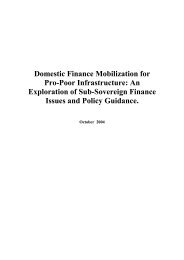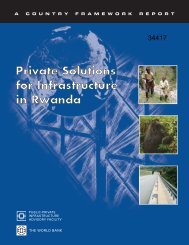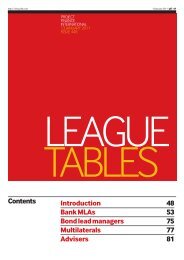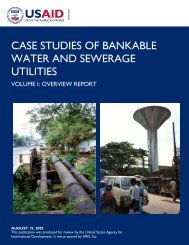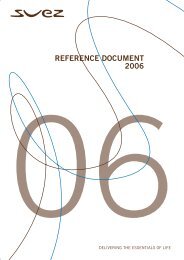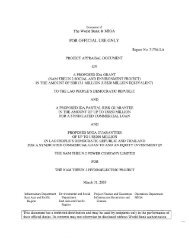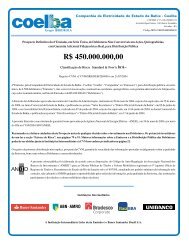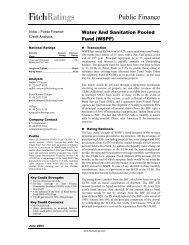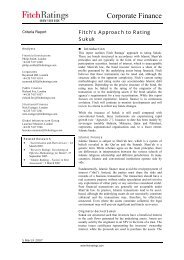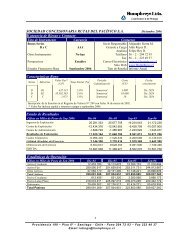EAP - The Pacific Infrastructure Challenge - World Bank (2006).pdf
EAP - The Pacific Infrastructure Challenge - World Bank (2006).pdf
EAP - The Pacific Infrastructure Challenge - World Bank (2006).pdf
You also want an ePaper? Increase the reach of your titles
YUMPU automatically turns print PDFs into web optimized ePapers that Google loves.
Competition<br />
<strong>The</strong>re is very little competition in <strong>Pacific</strong> infrastructure, but it has been effective in<br />
encouraging performance improvements in certain sectors despite small scale.<br />
In the telecommunications sector, while small scale prohibits implementing more<br />
than one fixed line network, mobile, international and internet services can be<br />
liberalized. International experience has shown that liberalization can significantly<br />
improve performance, even in small countries (see Box 7.8). <strong>Pacific</strong> countries that<br />
have tried this have experienced increased teledensity levels and reduced prices, for<br />
example in such as Tonga for mobile telephony, and Samoa for internet services<br />
provision.<br />
Box 7.8: <strong>The</strong> Effects of Competition on Telecommunications Performance<br />
<strong>The</strong> Caribbean provides an example of the benefits of competition in the<br />
telecommunications sector in small island countries.<br />
In the early 1990s, many Caribbean countries were becoming dissatisfied with slow<br />
expansion of telephone service. At the same time, these countries realized that<br />
high international calling charges and internet costs were a barrier to growth,<br />
particularly for countries focused on developing the service sector.<br />
In response to these pressures, Caribbean governments began to liberalize their<br />
telecommunications sectors. <strong>The</strong> Dominican Republic and Jamaica were the first<br />
to introduce pro-competitive legislation and regulation. Jamaica first liberalized<br />
internet service provision. This was followed by liberalization of mobile<br />
telecommunications. Three new licenses were auctioned and an interconnection<br />
regime controlled by the Organization of Utilities Regulators (OUR) was<br />
established. A three year rate rebalancing plan was implemented, bringing down<br />
international rates and increasing local calling charges, after which international<br />
calling was opened to competition. <strong>The</strong> Eastern Caribbean countries followed with<br />
similar reforms a few years later.<br />
Liberalization led to a remarkable increase in total access to telecommunications<br />
services, driven mainly by exponential growth rates in mobile phone use. Internet<br />
costs, international calling costs and mobile charges have all fallen dramatically<br />
with the introduction of competition.<br />
In the <strong>Pacific</strong>, few countries allow competition in the telecommunications sector.<br />
However, developments in the Samoan telecommunications sector suggest that<br />
liberalization could have similar effects.<br />
In the past, Samoa has demonstrated relatively low levels of fixed line and mobile<br />
access. However, following a recent government announcement that it would<br />
introduce competition in the sector, the market size has increased substantially<br />
and both fixed and mobile operator performance has improved.<br />
After this announcement, the mobile operator - Telecom Samoa Cellular - more<br />
than doubled its customer base, added new products and services and introduced a<br />
pre-paid platform. <strong>The</strong> fixed line operator – SamoaTel – has also substantially<br />
increased its customer base. Total customer numbers (fixed and mobile) increased<br />
from 22,150 to 30,000 from the end of 2003 to the end of 2004 alone.<br />
Source: <strong>World</strong> <strong>Bank</strong>, Castalia Research<br />
55



